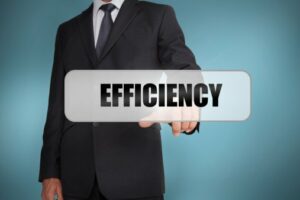Law is a service business. Whether we like it or not, our clients tend to assess our performance based on our reliability in returning calls and emails and keeping tabs on how a project is proceeding, and less so on the actual quality of our work. Many highly intelligent and skilled attorneys are tripped up by, for example, failing to keep up with the barrage of incoming emails.
The popular professor and non-fiction writer Dan Ariely (Predictably Irrational) has devoted much of his professional attention to work productivity issues. He has helped to develop a time management app called Timeful, which I haven’t tried, but to the extent it implements his ideas, it’s surely helpful. I wanted to focus here on just one of his tips, described in this Reddit thread, which is to try to get important tasks done in the morning, pretty soon after getting up, which is when most people are by far the most productive.
I’ve tried to implement this idea in a manner that works with the demands of my practice. Here’s the basic challenge: corporate attorneys have a mix of tasks that can be done in a couple of minutes or so, e.g., responding to a straightforward email, and ones that take longer, e.g., reviewing or drafting a long agreement. If you try to do one of the longer tasks while monitoring incoming email, each time you interrupt what you’re doing to attend to the email, you’re taken out of the flow of the longer task. And before you know it, you’ve been in email-responding mode for three hours, and you haven’t made discernable progress on the big item.
 I deal with this by setting attainable goals for the time-consuming tasks in advance for a particular day, and then seek to get them done before lunch. So when I start work at 8am, I just take a few minutes to scan emails received overnight to make sure nothing is urgent, but then I get right down to the big tasks (like this post, which I’m writing at 11am). I keep my email screen off most of the time, and while I do check periodically to make sure nothing urgent has come in, I try to avoid responding to them while I’m focusing on what I planned to do. Then, if all goes well, I can spend the rest of the day in “reactive” mode, responding to emails that are in my inbox and that continue to come in during the afternoon, with the satisfying feeling that I’ve plowed through my to do list.
I deal with this by setting attainable goals for the time-consuming tasks in advance for a particular day, and then seek to get them done before lunch. So when I start work at 8am, I just take a few minutes to scan emails received overnight to make sure nothing is urgent, but then I get right down to the big tasks (like this post, which I’m writing at 11am). I keep my email screen off most of the time, and while I do check periodically to make sure nothing urgent has come in, I try to avoid responding to them while I’m focusing on what I planned to do. Then, if all goes well, I can spend the rest of the day in “reactive” mode, responding to emails that are in my inbox and that continue to come in during the afternoon, with the satisfying feeling that I’ve plowed through my to do list.
Needless to say, I can’t impose complete control over client demands. Sometimes there are meetings or calls that take up the productive morning hours, sometimes I can’t get everything done in the morning that needs to get done, and sometimes things come up in the afternoon that need to get done that day or night. However, I’ve found that at least trying to organize my day in this manner has helped me both with productivity and my job satisfaction.